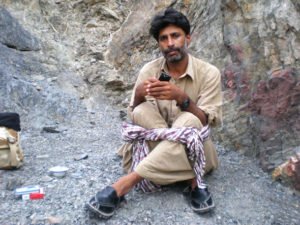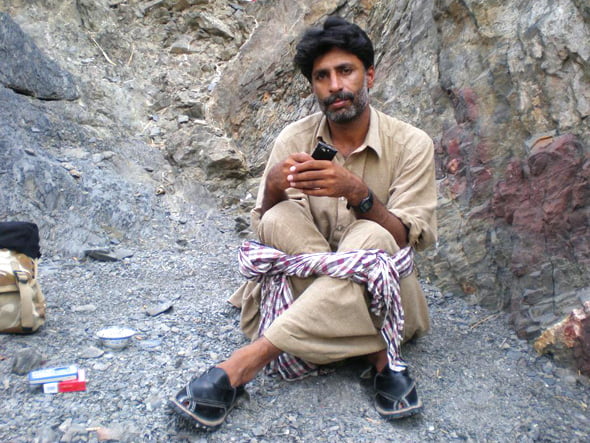When Franklin D. Roosevelt, the U.S. president (1933-1945), died in April 1945, the U.S soldiers were still fighting in the World War II (WWII), the deadliest war in the world history. One American soldier, deployed in Europe, wrote to his wife living in the US: We’re sorry to hear the news about Roosevelt’s death, but his death cannot shock us as thousands of humans are dying in front of us every moment.
 I could understand what he wrote at a superficial level. But I must admit that for years I could not really feel what the soldier meant. I could only make it in August 2015, when I heard the rumor about the murder of Dr Allah Nazar, the face of the Baloch freedom struggle, during a Pakistan military operation in Balochistan.
I could understand what he wrote at a superficial level. But I must admit that for years I could not really feel what the soldier meant. I could only make it in August 2015, when I heard the rumor about the murder of Dr Allah Nazar, the face of the Baloch freedom struggle, during a Pakistan military operation in Balochistan.
The news did make me upset, yet, like the American soldier, it did not shock me. For more than a decade, I’ve been reading or hearing about the martyrdom of my friends, colleagues, class fellows in the hands of the military on almost a daily basis. To me, Dr Allah Nazar’s death was an addition to the count of the dead Baloch, whose bullet riddled bodies I see almost every day on the social media.
As a sympathizer of the Baloch self-rule, instead of grieving and weeping, the news about his murder took me beyond the loss of an individual. I started worrying about the BLF, the Baloch national struggle, and the new leadership. This anxiety was much higher than the loss of Dr Allah Nazar.
It’s true that leaders often can’t avoid being murdered. If leaders such as John F. Kennedy, Anwar Saadat, Yitzhak Rabin, Muhammad Zia-ul-Haq, and many others did not die natural deaths, how can one expect it about Dr Allah Nazar? He is the leader of a militant organization fighting with an atomic power.
There is always the possibility of security lapses which can be exploited by Pakistan. [If happened, no one should blame Pakistan. Pakistan is openly there in Balochistan to kill. It is killing hundreds of innocent Baloch children, women, babies and elderly people. Obviously it has a far greater justification to kill a person like Allah Nazar.]
However, I would blame Dr Nazar for any leadership crisis within the BLF or the Baloch freedom struggle in the aftermath of his death. All ceased leaders must be blamed for any leadership crisis in their respective organizations after their departure. Leaders, including Dr Nazar, should make sure that there would be no leadership crisis after them.
One should differentiate between ‘leadership crisis’ and the ‘complications’ caused as result of a ‘leadership transition’ in an organization. Certainly, with any leadership transition, some complications would happen, and even some defections would take place. These complications and defections are a normal thing, and as such, are signs of a healthy organizational structure.
Organizations are not like dead bodies. Like a living body, they react to any structural surgery, particularly if it is related to the leadership, which is considered to be the heart of any organization.
Therefore, the BLF leadership should consider thoroughly the reactions within the BLF as well as the whole Baloch society in order to ensure a smooth transition of leadership in case Dr Allah Nazar gets murdered or arrested. While the strategy of Pakistan is based to the kill BLF by killing its leader, the strategy of the BLF should be based on producing a chain of leaders, who can lead the organization one after another. In this regard, Dr Allah Nazar should delegate authority to his juniors and supervise them in his life. It is very important not keep them in waiting, rather to get them engaged practically in leadership positions.
Dr Nazar has performed well in fighting. He should not be busy in fighting any more, rather he should be training new leaders to continue the struggle after him. To put it in another way, he has proved his military skills, and now it is time to prove his leadership skills by training young leaders who can protect his legacy.



